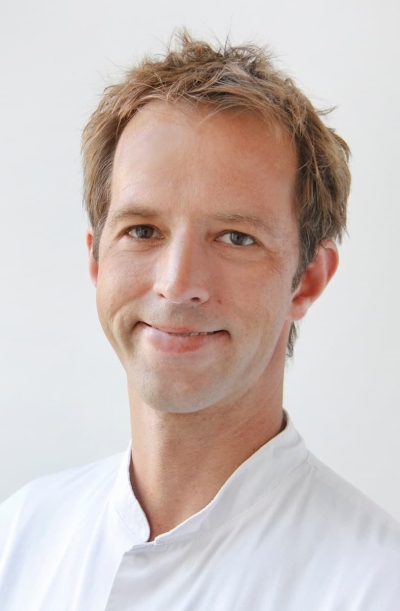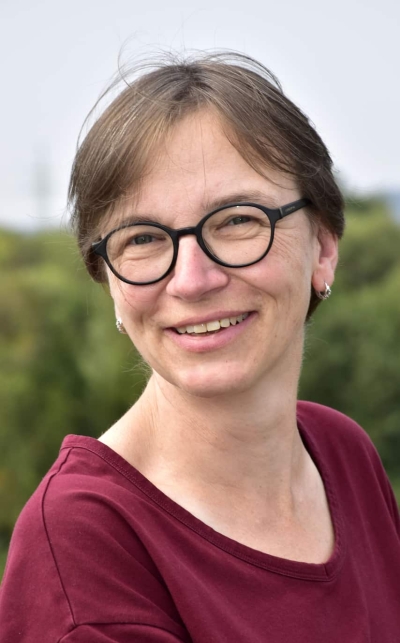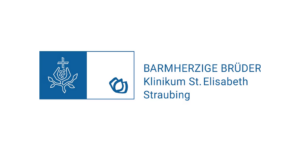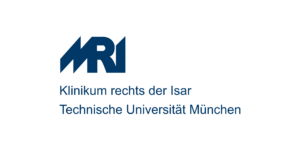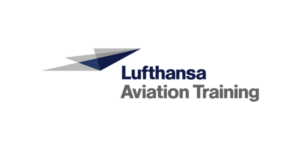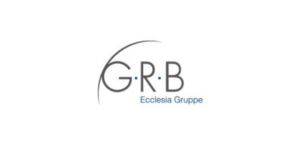
Patient safety: How to actively shape change
| Language: | Deutsch |
| Location: | München, Straubing, Remote |
| Duration: | 9 days |
| Start: | November 2024 – March 2025 |
| Cost: | 5850 € |
This professional development course gives you the tools to make your work safer for patients in the healthcare sector in the long term. The focus of the nine days of attendance is a change of perspective in dealing with safety in the healthcare sector: From reacting to errors and incidents to proactive action based on good and safe solutions and best practices – also in an international comparison
Professional Education Program for Sustainable Patient Care Safety
Why this training?
The Covid-19 crisis emphasizes the need for continuous adaptation to emerging risks in the healthcare system. This requires a change of perspective not only in times of crisis, but also in day-to-day dealings within the complex system. Greater patient safety requires proactive, risk-oriented action. Our training enables a change of perspective and promotes a new attitude for the future.
Focus: The human factor
This certificate is based on a systemic understanding of patient safety in the clinical environment. Particular attention is paid to organizational factors such as safety culture and the “human factor”. Successful concepts from aviation are presented and transferred to clinical situations using case studies.
Our speakers are experienced scientists and safety experts from the aviation industry as well as practitioners in patient safety projects. The curriculum is based on the WHO model curriculum on patient safety, the learning objectives catalog of the Patient Safety Action Alliance and highlights specific aspects of the AHRQ report 2020 “Making Health Care Safer III”.
Quick Info
Benefits
-
Practical Expertise for Safer Care
Learn proactive measures for sustainable patient care. Our training, rooted in aviation concepts, encourages a shift in perspective and provides practical solutions for healthcare safety.
-
Future-Focused Risk Optimization
Enhance your responses to healthcare risks. Our training facilitates a shift towards proactive, solution-oriented actions, inspired by high-reliability organizations.
-
Collaborative Learning Experience
“
Dive into a mix of online and in-person learning. We use digital networks and face-to-face sessions to encourage teamwork, build professional connections, and boost career prospects.”
Program Overview
You can find all the important information about the certificate program here. Below you can find out the objectives of the program, the exact details of the process, what you will learn and which lecturers will teach you the content.
Aims of the certificate course
- You will learn to understand the basic concepts and principles of patient safety and recognize the importance of safety measures in healthcare.
- You will develop skills to identify and analyze risks and hazards to patient safety in medical facilities and clinical processes.
- You will gain knowledge of best practices and strategies to promote a safety-oriented culture in healthcare facilities, including teamwork, effective communication and error management.
- You will learn methods and tools to assess and improve patient safety, including risk management procedures, error analysis and quality improvement initiatives.
- You will develop skills to implement evidence-based interventions and strategies to prevent medical errors, minimize risk, and maximize patient safety in a variety of clinical settings.
Details
| Program: | Patient safety: How to actively shape change |
| Conception: | Technische Universität München, MEC Prof. Dr. Pascal Berberat Prof. Dr. Rainer Haseneder Dr. Karen Schmidt-Bäse Klinikum St. Elisabeth Straubing Barmherzige Brüder Dr. Christoph Scheu Daniel Albus Klinikum rechts der Isar, TU München Dr. Martin Siess Prof. Dr. Markus Schwaiger Dr. Angelika Werner |
| Graduation: | After successfully passing the final examination, participants receive a certificate from the Technical University of Munich. |
| Academic responsibility: | Prof. Dr. med. Pascal O. Berberat Prof. Dr. med. Rainer Haseneder |
| Target audience: | Physicians, experienced nursing staff and health scientists. Individuals involved in healthcare safety (e.g., quality and risk managers, future patient safety officers, lawyers, pharmacists, and others) |
| Participation fee: | 5.850,00 € per Person* |
| Language: | German |
| Dates: | November 2024 – March 2025 |
| Study locations: | Munich, Schwaig (Oberding), Straubing, Online |
| Format & Timing: | Part-time, on-site and online (blended learning), 9 days on-site (Munich, Schwaig, Straubing) |
| Continuing education points: | The certificate can be used to acquire 5 ECTS points, 150 advanced training points at the Bavarian State Medical Association and 20 advanced training points when registering professional carers. The certificate fulfills the requirements of the Patient Safety Ordinance (PaSV) Hessen as well as the requirements for risk management according to the quality management guideline (QM-RL) of the Federal Joint Committee (G-BA) according to § 137 SGB V 2016. The certificate is based on the Patient Rights Act (BGB) of 2013 and takes into account the standards ÖNORM 4900 ff. “Risk management for organizations and systems”, DIN EN ISO 9001: 2015 and the European standard DIN EN 15224: 2017-05. |
| Admission requirements: | Participants should have relevant work experience of at least 2 years. |
* Based on our experience, the German tax benefits help many of our participants to self-finance their education as these can be worth of up to 50% of tuition fees and program related travel costs. Please, consult your personal tax advisor for more details. For participants of our programs residing outside Germany this might be applicable, please check the situation with the local tax authorities in your country of residence
Lecturers
| Prof. Dr. Klaus Bengler Chair of Ergonomics, Technical University of Munich (TUM) | Prof. Dr. Rainer Haseneder Department of Anesthesiology and Intensive Care Medicine Klinikum rechts der Isar, Technical University of Munich (TUM) |
| Dr. Angelika Werner Quality and Risk Management Department Klinikum rechts der Isar, Technical University of Munich (TUM) | Prof. Dr. Andreas Dinkel Lead Psychologist Psychosomatics Department Klinikum rechts der Isar, Technical University of Munich (TUM) |
| Dr. Eva Knipfer Department of Vascular and Endovascular Surgery Klinikum rechts der Isar, Technical University of Munich (TUM) | Prof. Dr. Matthias Weigl Professor of Patient Safety, Director of the Institute for Patient Safety (IfPS) Medical Faculty, Rheinische Friedrich-Wilhelms-Universität Bonn |
| Johannes Jaklin Specialist Lawyer for Medical Law Ecclesia Group | Dr. Friedemann Gebhardt Hospital Hygiene Department Klinikum rechts der Isar, Technical University of Munich (TUM) |
| Dr. Christiane Querbach Antibiotic Stewardship Department Klinikum rechts der Isar, Technical University of Munich (TUM) | Anita Kellermann Hospital Pharmacy Klinikum rechts der Isar, Technical University of Munich (TUM) |
| Prof. Dr. Sebastian Goerg Professorship for Economics, Technical University of Munich (TUM) | Dr. Christoph Scheu Management Klinikum St. Elisabeth Straubing, Barmherzige Brüder |
| Capt. Cordula Pflaum Training Captain A350 Lufthansa | Dr. Peter Gaussmann Honorary Professor of Patient Safety and Clinical Risk Management – Danube University Krems Managing Director – GRB Gesellschaft für Risiko-Beratung mbH |
| Prof. Dr. Matthias Jacob Department of Anesthesiology, Surgical Intensive Care Medicine, and Pain Medicine Klinikum St. Elisabeth Straubing, Barmherzige Brüder | Capt. Manfred Müller Former Head of Flight Safety Research Deutsche Lufthansa AG |
| Dr. Marc Lazarovici Dipl.- Inf. President Society for Simulation in Europe Institute for Emergency Medicine and Medical Management, LMU Klinikum Munich | Dr. Marcus Rall Leitung Head of InPASS Institute for Patient Safety & Team Training GmbH |
| Prof. Dr. Bertil Bouillon Chair of Trauma Surgery and Orthopedics University of Witten/Herdecke | Dr. Katharina Willis Innovation Consultant & Research Assistant TUM School of Education |
Structure
Safety in medicine
- Presentation of the issue
- Current handling of security
- Solution-based approaches in different systems
Focus on the human factor
- Human reliability
- Interpersonal skills (with simulation training)
- Transfer to medicine
Shaping change in your own organization
- Deepening new perspectives in safety management
- Get to know established solutions based on best practice examples
- Developing your own solutions
Focus Patient Safety
Get impressions from lecturers, partners and supporters of the program Patient Safety.
Testimonials
Partners
Request for the latest information on the certificate Patient safety: How to actively shape change
"*" indicates required fields

Your contact
Anja Branković
Program Manager
Phone: +49 (89) 289 – 28479
E-Mail: datascience@lll.tum.de
